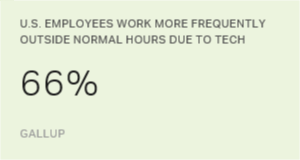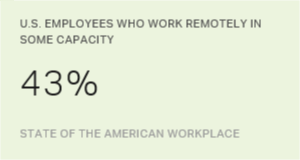Virgin Group Founder and Chairman Richard Branson's announcement last week that he is giving his staff unlimited vacation days has certainly raised a few eyebrows. Critics question whether employees will abuse the unlimited vacation days "policy" and whether that will harm business. Other skeptics wonder if this policy, or lack thereof, will result in hard-charging employees to not take any time off and will become a detriment to their engagement or well-being.
My opinion is that Branson is onto something we here at Gallup discovered decades ago. For the past 40+ years, Gallup has had an open vacation/time-off policy. Starting in the 1970s with a base of just 50 employees -- and expanding to more than 2,300 today -- we have made it work for both our associates and, most importantly, our customers. An open vacation policy may not be practical for all industries or types of businesses, but where it is possible, it is actually a good thing for associates and the business if managed appropriately.
Based on our experience, here are five things we have learned that can make this vacation "policy" work for both customers and associates:
1. Hire associates with the "right fit." When you hire an associate for their talents, skills, and strengths you are more likely to hire a person who is engaged in their work and who takes psychological responsibility for their customers, peers, and the work to be accomplished. A person who is a right fit and resonates with their job hates to let others down, and so they will perfectly communicate when they are available or when they need to be out of reach. They will also assume responsibility for ensuring their work is done, or that a plan is in place for a coworker to complete whatever may need to be done while they are out of the office.
2. Select great managers. Great managers, not just any average manager, find a way to help people do what they do best in their jobs, while also helping their staff achieve high well-being. If a person thinks vacations or time spent with family are what inspires or motivates them to do better at their job, then a great manager will work to help them find a way to take time to travel or to be with their kids or elderly parents. Great managers resource employees to their strengths, their ambitions, their performance, and their outcomes. Done right, managers can juggle all schedules to make this policy work for the individual, the clients, and the company.
3. Focus on performance metrics and outcomes, and then hold managers and associates accountable. This includes how you pay them and what is expected to retain a job or become promoted. There are 8,760 hours in a year, and a company may get 1,800 of those or perhaps they get 3,000 of those from every individual associate. If pay and titles are commensurate with the performance expectations and outcomes, the associate should be able to choose how they spend the other 5,760-6,960 hours. Encouraging and empowering associates to take what they need or want is the most powerful outcome of this vacation policy -- some associates literally don't want to spend the money or be away from home, others want to be gone every weekend, and yet others want that time to leave early to be with their kids.
4. Focus on the hours an associate is working and not on the times when they are not. Set a goal for a total amount of hours for the associate to work that year, appropriate to their position, and let them accrue those hours in a way that best suits them and their clients. A general guideline of two weeks for new associates with a day added for each year after two years can be used when calculating the right amount of vacation time annually. However, clearly state to employees that in any one year they can take more time if they need or want to, and that this is just a guideline. There will be weddings, anniversaries, milestone birthdays, deaths, and kids' activities, and it can vary from year to year. The most important guideline to keep in mind is what your associates accomplish in their jobs.
5. Expect customer centricity. The end result should always be service and impact for clients. If associates know who they are servicing and for whom they are creating impact, and if they are held accountable by a great manager who similarly holds the entire team accountable, the client or business will never miss a beat. With many online scheduling and resourcing tools available for projecting hours, deadlines, and full-time equivalent needs, it is easier than ever to make this work.
Have we ever had anyone abuse it? Yes, but I can count the number of employees on two hands in 30 years. Have we ever had anyone not take enough time away? Rarely, but a handful abstain from time off either due to their choice to save the money or not wanting to leave work. It is rare. Have we had people cite it as a reason for leaving? Yes, a few, but they weren't the type of associates that fit our culture of trust, transparency, and partnership, and they didn't have the relationships or performance to make the policy work. The positives and advantages to this policy significantly outweigh the disadvantages. After all, your most talented and intense hard workers are usually the ones that believe in the mantra "work hard, play hard."
It's all about great managers who set the right expectations and then manage the outcomes. With that, this nouveau form of vacation policy can be a huge recruiting, retention, and engagement advantage as well as great for a human's well-being. It is just the right thing to do.




